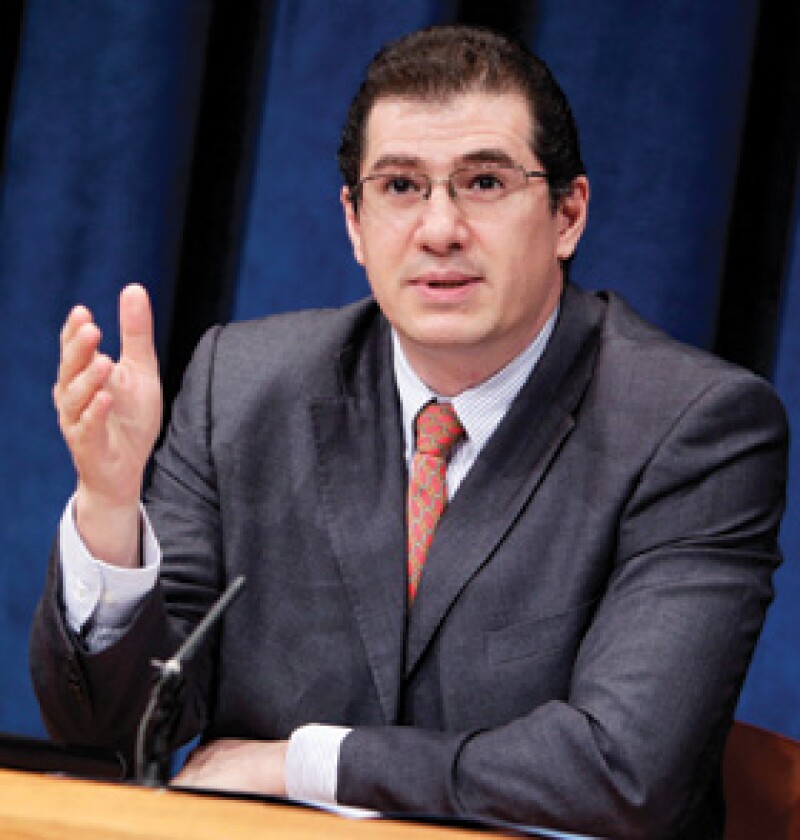
Armando Lara Yaffar is the chairman of the UN Tax Committee. He is also the deputy director general for international treaties within the department of revenue and public credit at the Ministry of Finance in Mexico.
Yaffar was first elected to his post at the UN in 2009 and was re-elected in 2013, with his position continuing until 2017.
Michael Lennard, the chief of the International Tax Cooperation Section of the UN says Yaffar is a “great choice” for the Top 50: “Armando has been a truly great chair. He knows when to move things along, he knows when to let people have their say, he likes the role, is a strong people person, has the technical strength and charisma to bring people along with him, he believes in the UN tax cooperation role and, last but not least, he has the necessary stamina to deal with a gruelling week during the Tax Committee annual session. I enjoy working with him at the personal level and I always learn a lot from him.”
International Tax Review: What has been the most difficult aspect of your role in the Committee of Experts?
Armando Lara Yaffar: Reaching agreements on discussions related to source versus resident taxation rights, particularly in areas such as services, technical assistance, and permanent establishment. I also remember that one of the most difficult discussions was whether the UN model should support the arm's-length principle or whether it should have alternatives. This issue could have stopped the update of our model and affected the work of the subcommittee on transfer pricing, as the manual on this subject was based on that principle. After much effort we reached a mutually satisfactory solution.
ITR: When working on the UN tax projects, what is your workload like and how do you balance these commitments with your commitments at the Ministry of Finance?
ALY: It's complicated, because it involves dividing my time accurately to meet all business commitments. We recently had a broad tax reform in Mexico, where I was in charge to revise not only the international issues, but also some financial ones, which meant that my working days were very long, especially when I was attending the UN meeting, but also with the work that I am responsible for related with OECD matters, where I have participated actively. In this respect I am a member of the bureau of the Committee on Fiscal Affairs, which is the governing body of all the work done on taxation in the OECD; besides I am the chairman of Working Party 10, at the OECD, focusing on information exchange and tax compliance, and I am the Mexican delegate in Working Party 1 on treaties. Finally, I'm the chief negotiator of treaties to avoid double taxation and exchange of information, so it certainly becomes complicated.
ITR: What is next for the Committee?
ALY: The next update of the Model UN will be the first responsibility of the new members signed in this year. In this sense, I see three very important issues that should be incorporated into the model; the first one is the article about tax on technical services, the second is to provide guidance on the tax treatment of the extractive industries - because this is an issue that developing countries have asked for guidelines on to find a proper balance to collect taxes from the exploitation of their natural resources - and the third is to review the conclusions drawn on the BEPS project developed by the OECD, to determine if they could raise potential impact on the UN model (I am quite sure yes), and determine whether it is necessary to adopt new rules and guidelines to provide technical assistance to developing countries in this area.
ITR: What do you consider to be the biggest achievement of the Committee since you have been chairman?
ALY: Definitively it is the update of the UN model and the publication of the transfer pricing manual. Thanks to this, the Committee began to take its rightful place within the international tax scene.
The Global Tax 50 2013 |
||
|---|---|---|
Mark Konza |
Carl Levin |
|









